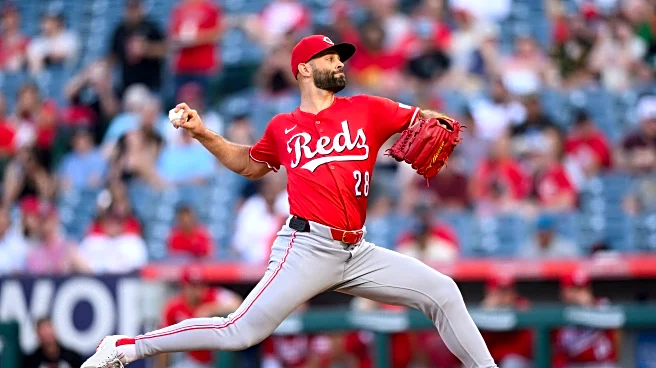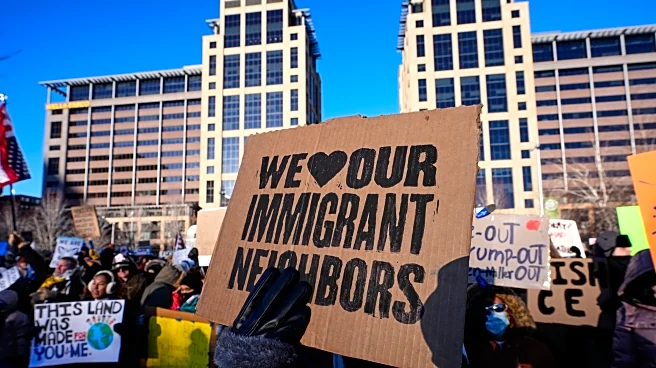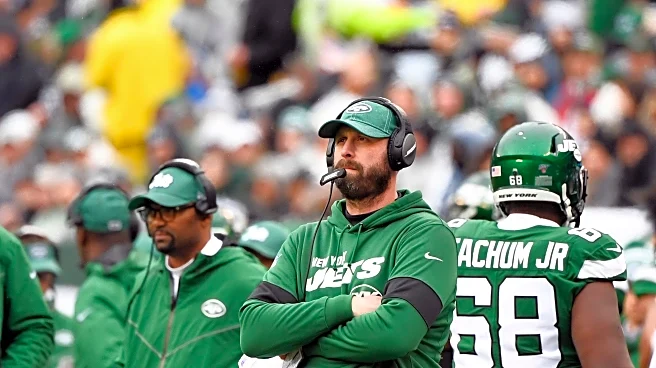Rapid Read • 8 min read
The Executive Branch of the United States government is led by the President, who serves as both head of state and Commander-in-Chief of the armed forces. The President is responsible for implementing and enforcing laws written by Congress and appoints the heads of federal agencies, including the Cabinet. The Executive Office of the President (EOP) consists of immediate staff to the President and entities such as the Office of Management and Budget and the Office of the United States Trade Representative. The Vice President is also part of the Executive Branch, ready to assume the Presidency if necessary. The Executive Branch employs over 4 million Americans, including members of the armed forces, and is responsible for day-to-day enforcement and administration of federal laws.
AD
The Executive Branch plays a crucial role in the U.S. government, as it is responsible for executing laws and managing federal agencies. The President's ability to appoint agency heads and issue executive orders allows for significant influence over national policy and governance. The EOP's support is vital for ensuring that the President can effectively address complex challenges, from national security to economic policy. The Executive Branch's structure and functions impact various aspects of American life, including public safety, economic stability, and international relations. Its ability to adapt to new challenges and provide comprehensive support to the President underscores the dynamic nature of governance.
The Executive Branch is expected to continue evolving to meet the changing needs of the presidency, with potential expansions in areas such as digital strategy and legislative affairs. As new challenges arise, the Executive Branch may adapt its structure and functions to provide more specialized support to the President. This could include increased focus on emerging technologies, cybersecurity, and global trade issues. The Executive Branch's ongoing development will be crucial for maintaining effective governance and ensuring that the President can respond to both domestic and international challenges.
The Executive Branch's powers and responsibilities highlight the importance of having a well-organized and efficient government. Its ability to adapt to new challenges and provide comprehensive support to the President underscores the dynamic nature of governance. This adaptability is crucial for addressing long-term shifts in policy priorities and ensuring that the U.S. remains responsive to global changes.
AD
More Stories You Might Enjoy












